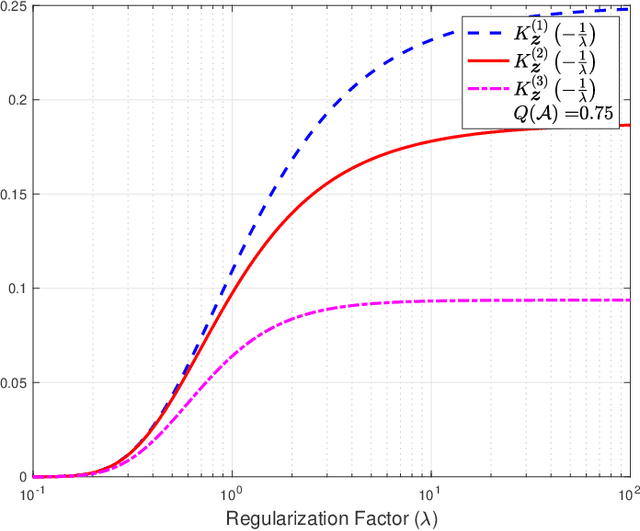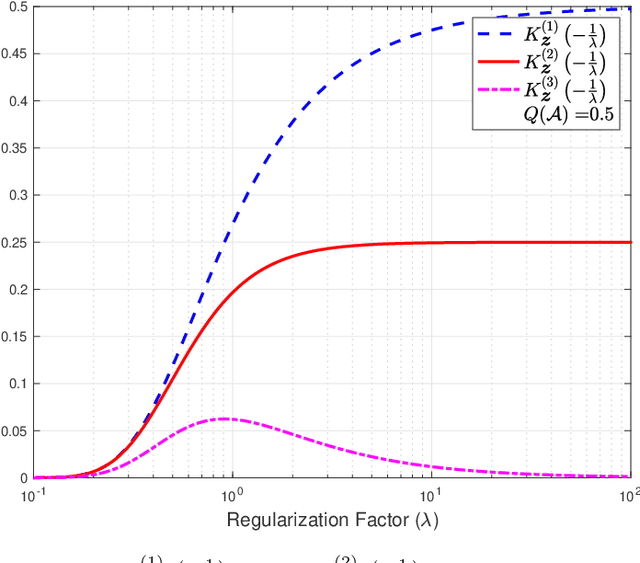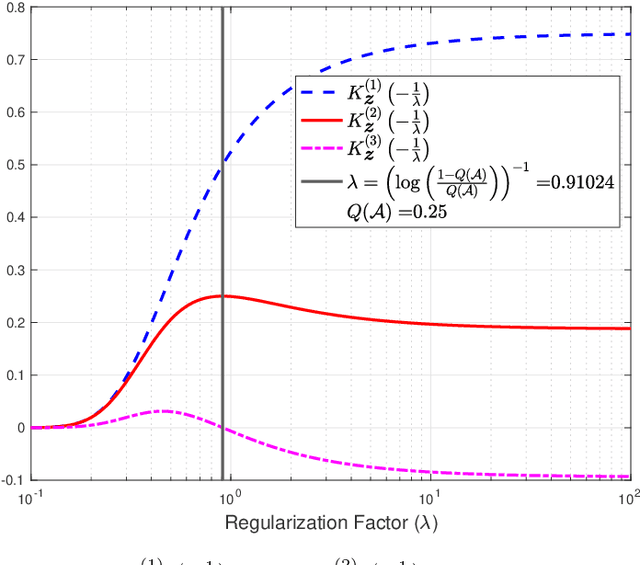Alain Jean-Marie
Empirical Risk Minimization with Generalized Relative Entropy Regularization
Nov 12, 2022


Abstract:The empirical risk minimization (ERM) problem with relative entropy regularization (ERM-RER) is investigated under the assumption that the reference measure is a~$\sigma$-finite measure instead of a probability measure. This assumption leads to a generalization of the ERM-RER (g-ERM-RER) problem that allows for a larger degree of flexibility in the incorporation of prior knowledge over the set of models. The solution of the g-ERM-RER problem is shown to be a unique probability measure mutually absolutely continuous with the reference measure and to exhibit a probably-approximately-correct (PAC) guarantee for the ERM problem. For a given dataset, the empirical risk is shown to be a sub-Gaussian random variable when the models are sampled from the solution to the g-ERM-RER problem. Finally, the sensitivity of the expected empirical risk to deviations from the solution of the g-ERM-RER problem is studied. In particular, the expectation of the absolute value of sensitivity is shown to be upper bounded, up to a constant factor, by the square root of the lautum information between the models and the datasets.
Zero-Sum Games with Noisy Observations
Nov 03, 2022
Abstract:In this paper, $2 \times 2$ zero-sum games (ZSGs) are studied under the following assumptions: (1) One of the players (the leader) publicly and irrevocably commits to choose its actions by sampling a given probability measure (strategy);(2) The leader announces its action, which is observed by its opponent (the follower) through a binary channel; and (3) the follower chooses its strategy based on the knowledge of the leader's strategy and the noisy observation of the leader's action. Under these conditions, the equilibrium is shown to always exist and be often different from the Nash and Stackelberg equilibria. Even subject to noise, observing the actions of the leader is either beneficial or immaterial to the follower for all possible commitments. When the commitment is observed subject to a distortion, the equilibrium does not necessarily exist. Nonetheless, the leader might still obtain some benefit in some specific cases subject to equilibrium refinements. For instance, $\epsilon$-equilibria might exist in which the leader commits to suboptimal strategies that allow unequivocally predicting the best response of its opponent.
Empirical Risk Minimization with Relative Entropy Regularization: Optimality and Sensitivity Analysis
Feb 09, 2022Abstract:The optimality and sensitivity of the empirical risk minimization problem with relative entropy regularization (ERM-RER) are investigated for the case in which the reference is a sigma-finite measure instead of a probability measure. This generalization allows for a larger degree of flexibility in the incorporation of prior knowledge over the set of models. In this setting, the interplay of the regularization parameter, the reference measure, the risk function, and the empirical risk induced by the solution of the ERM-RER problem is characterized. This characterization yields necessary and sufficient conditions for the existence of a regularization parameter that achieves an arbitrarily small empirical risk with arbitrarily high probability. The sensitivity of the expected empirical risk to deviations from the solution of the ERM-RER problem is studied. The sensitivity is then used to provide upper and lower bounds on the expected empirical risk. Moreover, it is shown that the expectation of the sensitivity is upper bounded, up to a constant factor, by the square root of the lautum information between the models and the datasets.
 Add to Chrome
Add to Chrome Add to Firefox
Add to Firefox Add to Edge
Add to Edge